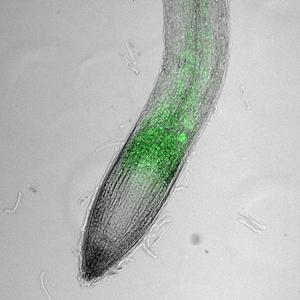
University of Queensland researchers have for the first time introduced genetic material into plants via their roots, opening a potential pathway for rapid crop improvement.

The Austrian researchers are the first in the world to demonstrate 'YeiN', an enzyme that is a suitable biocatalyst for the production of C-nucleosides, the basic building blocks of RNA.

An all-Princeton research team has identified bacteria that can detect the speed of flowing fluids.

The achievement opens up the possibility of using similarly bioengineered lungs for humans in need of a lung transplant.

Researchers use a precision 3D cell-patterning technology called DNA-programmed assembly of cells (DPAC) to set up an initial spatial template of a tissue that then folds itself into complex shapes.

New techniques in DNA self-assembly allow researchers to create the largest to-date customizable patterns with nanometer precision on a budget.

Defer Radical Self-Modification, Says Historian, to Avoid Destabilizing Civilization.